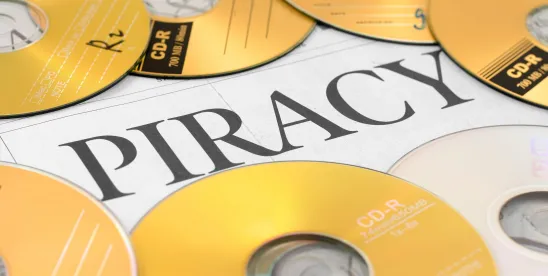The US Court of Appeals for the District of Columbia affirmed that the Digital Millennium Copyright Act’s (DMCA) laws against bypassing digital locks and distributing circumvention tools are designed to prevent piracy and are not unconstitutionally broad. Matthew D. Green, et al. v. United States Department of Justice, et al., Case No. 23-5159 (D.C. Cir. Aug. 2, 2024) (Pillard, Henderson, Millett, JJ.)
As technology has advanced, access to copyrighted content has expanded dramatically, with billions of people now able to stream or download content instantly. In response to this digital revolution, Congress enacted the DMCA 26 years ago to address the growing threat of digital piracy and unauthorized access to copyrighted materials online. The DMCA reinforces the use of technological protection measures, or “digital walls,” to secure copyrighted works from unauthorized access. The DMCA’s anticircumvention provision prohibits bypassing these technological protections, treating such acts as akin to digital trespassing.
Matthew Green, a computer science professor at Johns Hopkins University, and Andrew Huang, a tech inventor, challenged the constitutionality of key sections of the DMCA. They argued that the DMCA’s anticircumvention and antitrafficking provisions, which prohibit the circumvention of technological protections on copyrighted works and the distribution of circumvention tools, violated their First Amendment rights. They claimed that these provisions excessively restricted their ability to engage in lawful speech, particularly in the context of fair use.
While the DMCA leaves the fair use defense intact, Green and Huang argued that the DMCA unduly restricts fair use, particularly when the DMCA prohibits activities that would otherwise be considered lawful under copyright law. The district court dismissed Green and Huang’s facial First Amendment challenges, finding that they had not demonstrated that § 1201 of the DMCA overwhelmingly restricted protected speech to the extent that it warranted facial invalidation. Green and Huang appealed.
The DC Circuit explained that the DMCA’s anticircumvention provisions primarily target conduct – specifically, the act of bypassing digital protections – rather than expression. The Court noted that such conduct is not inherently expressive and does not typically implicate the First Amendment. The Court also found that the DMCA’s anticircumvention provisions serve a legitimate and extensive purpose in preventing piracy. While Green and Huang cited examples of potential overreach, such as a teacher circumventing a DVD’s encryption for classroom use, the Court explained that these examples did not convincingly demonstrate that the statute’s unconstitutional applications outweighed its lawful ones. The Court further explained that existing exemptions, such as those allowing circumvention for educational purposes, reduce the burden on free speech.
Green and Huang also argued that § 1201(a) imposes an unconstitutional prior restraint on speech by requiring fair users to obtain exemptions from the Librarian of Congress before circumventing technological protections. They likened this process to a speech-licensing regime, claiming that it invites content and viewpoint discrimination without sufficient judicial oversight. However, the DC Circuit rejected this claim, ruling that the DMCA’s exemption process is not a prior restraint on speech. The Court reiterated and emphasized that § 1201(a) regulates conduct, not expression, and that the exemption process lacks the close nexus to expression necessary to qualify as a speech-licensing regime.
The DC Circuit also noted that individuals can still bring as-applied challenges if they believe the Librarian’s exemption determinations were based on content or viewpoint discrimination. However, the Court found that § 1201(a) does not prevent individuals from conveying their messages, as they often have alternative ways to access copyrighted material lawfully.
Practice Note: The DMCA’s anticircumvention provisions are constitutional when aimed at preventing piracy. Challenges to digital rights laws need to show significant, specific harm to protected speech rather than general concerns.



 />i
/>i

